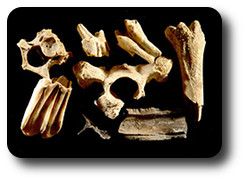Sunday 31 October, 5.30pm until 6.30pm, Courtyard Gallery
 Digging up old stuff has perhaps not enjoyed such popularity since the heady days of Schliemann at Troy. Amateur enthusiasts with metal detectors search fields for Roman treasure, Time Team’s three-day digs command audiences in the millions, and documentaries detail the recovery and identification of bodies from the trenches of the First World War. Numerous websites list opportunities for volunteer archaeologists, offering backbreaking manual labour in the heat and dust, wages and accommodation not included. Archaeologists even hit the news, embedded with military units, trying to save Sumerian treasures from destruction in the Iraq war. Just what lies underneath all this?
Digging up old stuff has perhaps not enjoyed such popularity since the heady days of Schliemann at Troy. Amateur enthusiasts with metal detectors search fields for Roman treasure, Time Team’s three-day digs command audiences in the millions, and documentaries detail the recovery and identification of bodies from the trenches of the First World War. Numerous websites list opportunities for volunteer archaeologists, offering backbreaking manual labour in the heat and dust, wages and accommodation not included. Archaeologists even hit the news, embedded with military units, trying to save Sumerian treasures from destruction in the Iraq war. Just what lies underneath all this?
As an academic discipline, rather than in popular culture, archaeology finds it rather more difficult to justify itself in these days of university impact statements and funding cuts. One of the first victims of the new government’s spending retrenchment was the proposed £25m Stonehenge visitor centre. Although Augustus Pitt Rivers long ago established a clear divide between archaeology and antiquarianism, by including mundane objects in the record as well as things of beauty or value, archaeology can still be uncomfortable with itself as a discipline. Within archaeology debates rage between those unhappy with the rigid but human-centred scientific approach of the ‘New Archaeology’ of the 1960s (‘archaeology is anthropology or it is nothing’) and postmodernists who stress the role of interpretation over process, culturally-sensitive self-reflexivity over impartiality.
In a wider context, some object to the damage digs may do to the environment, or have ethical concerns about the destruction of sites of importance to descendant peoples. Still others hold up the presence of archaeological sites as reasons to block developments such as dams, often despite the fact that these sites will go unexcavated because of the prohibitive cost or the aforementioned ethical concerns. To cap it all, there are problems of looting, and the fact that objects that have already entered the archaeological record are now increasingly subject to repatriation claims.
Perhaps it is partly in response to these dilemmas that archaeologists have sought to reach out and popularise their work. But does this run the risk of reducing the study of prehistory to the modern equivalent of charting your family tree? An entertaining diversion for the amateur history nut? With no great damage done but not much uncovered either? While we do not need to shed any tears at the demise of the Indiana Jones model of white man brings beauty back from savagery, do we not need to articulate better just what archaeology is good for? After all, without it we have no way of finding out more about the historical development of pre-literate human societies: the early development of technology, agriculture and religion, or supplementing what meagre written records we may have from ancient cultures. Should we be more serious about digging up the past?
Listen to session audio:
 | Yannis Hamilakis professor of archaeology, University of Southampton; author, The Nation and its Ruins: antiquity, archaeology, and national imagination in Greece; winner, 2009 Edmund Keeley Book Prize |
 | Ian Morris Willard Professor of Classics and professor, history and archaeology, Stanford University; author, Why the West Rules - For Now: the patterns of history and what they reveal about the future |
 | Mike Pitts editor, British Archaeology; recipient, British Archaeology Press Award |
| Chair: | |

|
Justine Brian
director, Debating Matters Competition |
 Why does the West rule? In this magnum opus, eminent Stanford polymath Ian Morris answers this provocative question, drawing on 50,000 years of history, archeology, and the methods of social science, to make sense of when, how, and why the paths of development differed in the East and West — and what this portends for the 21st century.
Why does the West rule? In this magnum opus, eminent Stanford polymath Ian Morris answers this provocative question, drawing on 50,000 years of history, archeology, and the methods of social science, to make sense of when, how, and why the paths of development differed in the East and West — and what this portends for the 21st century.
Ian Morris, Profile Books, 4 November 2010
Cancelling what was already an inadequate plan for the site's rehabilitation just adds insult to injury to this wonder of the world
Jonathan Jones, Guardian, 18 July 2010 Archaeology on the front line
Archaeology on the front line
Tiffany Jenkins speaks to heritage professionals in fierce disagreement about their sector’s involvement in wars.
Tiffany Jenkins, spiked, 13 April 2010Comedian Eddie Izzard on archaeology
Eddie Izzard, Sexie Tour, 2003
 This story of the discovery of a lost civilisation that spanned five centuries, a civilisation that now lies mostly beneath the fields of Southern England.
This story of the discovery of a lost civilisation that spanned five centuries, a civilisation that now lies mostly beneath the fields of Southern England.
Mike Pitts, Arrow Books, 2 August 2001